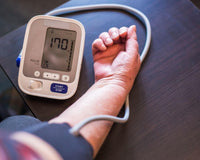Fluconazole And Alcohol: Fluconazole Uses, Dosage, Side Effects And Warnings
Fluconazole is a prescription medication that can be used to treat fungal and yeast infections, as well as other candida infections. It is available as both a generic drug and as the brand name medication Diflucan. In this article, we discuss the uses, dosage, side effects, and warnings of fluconazole. We also answer discuss fluconazole interactions, including the relationship between fluconazole and alcohol.
Fluconazole And Alcohol
Fluconazole and alcohol don't interact with each other, but drinking alcohol while taking fluconazole might increase your risk for multiple side effects, including the following:
- Nausea
- Stomach pain
- Diahrrea
- Liver damage
Fluconazole Uses
As an antifungal medication, fluconazole can be used to treat a variety of conditions, including the following:
- Vaginal candidiasis
- Esophagael candidiasis
- Peritonitis
How To Take Fluconazole
Take fluconazole as directed by your doctor or other medical professional. Swallow the capsules whole with a drink of water. It is best to take your fluconazole capsules at the same time each day.
Fluconazole Dosage
Your dosage of fluconazole may differ depending on a variety of factors, including the following:
- Your age
- Your weigth
- Severity of your condition
Dosage For Cryptoccal Meningitis
Adult: 400mg on the first day, followed by 200mg per day for 10-12 weeks.
Dosage For Esophagael Candidiasis
Adult: 200mg on the first day, followed by 100mg per day for at least 3 weeks.
Dosage For Oropharyngeal Candidiasis
Adult: 200mg on the first day, followed by 100mg per day for at least 3 weeks.
Side Effects of Fluconazole
Like most medications, fluconazole does come with a list of associated side effects.
Common Side Effects
The most common side effects of fluconazole include, but are not limited to, the following:
- Dark urine
- Dizziness
- Diahrrea
- Fever
- Chills
- Fast heartbeat
- Cough
- Headache
- Hives
- Nausea
- Loss of appetite
- Vomiting
- Unpleasant breath odor
If these effects are mild, they may subside within a few day or at least, a couple of weeks. If these effects are more severe and have not gone away talk with your healthcare professional.
Serious Side Effects
Some side effects of fluconazole are more serious and may require medical attention.
Contact your doctor or pharmacist right way if you are experiencing serious side effects. If you think any of these symptoms are life threatening call 911 immediately.
- Black, tarry stools
- Fainting
- Slow heart rate
- Joint or muscle pain
- Lower back pain
- Loss of muscle control
- Pale skin
- Numbness or tingling
- Seizures
- Skin lesions
- Swollen glands
- Unusual bruising or bleeding
Disclaimer: At ManifestRX our goal is to provide you with the most relevant and current information. Unfortunately, because drugs affect each individual differently, we cannot guarantee that this information includes all possible side effects.
How Long Does It Take For Fluconazole To Work?
It may take 1 to 2 weeks for fluconazole to reach its full effect. Talk to your doctor if your symptoms have not improved at all after 10 days of taking fluconazole.
How Long Does Fluconazole Stay In Your System?
In most cases, fluconazole stays in your system for at least 72 hours.
Fluconazole Interactions
Fluconazole can cause some medications to stay in your body and blood stream for longer than intended. The interactions of fluconazole include, but are not limited to, the following:
Warfarin
Warfarin is a blood thinning medication that helps to prevent blood clots. As you take warfarin, it is broken down by the body into two different enzymes. Fluconazole can inhibit the function of these enzymes.
Amiodarone
Amiodarone is a medication used to treat abnormal heart rhythms. Fluconazole can increase the risk of heart problems and malfunctions if taken in conjunction with amiodarone.
Can I Take Fluconazole And Boric Acid Together?
There are no known interactions between fluconazole and boric acid. You should, however, always talk to your doctor about potential interactions and side effects before taking any medication.
Fluconazole And Alcohol: Fluconazole Uses, Dosage, Side Effects And Warnings Summary
Fluconazole is a prescription medication that can be used to treat fungal and yeast infections, as well as other candida infections. It is available as both a generic drug and as the brand name medication Diflucan.








